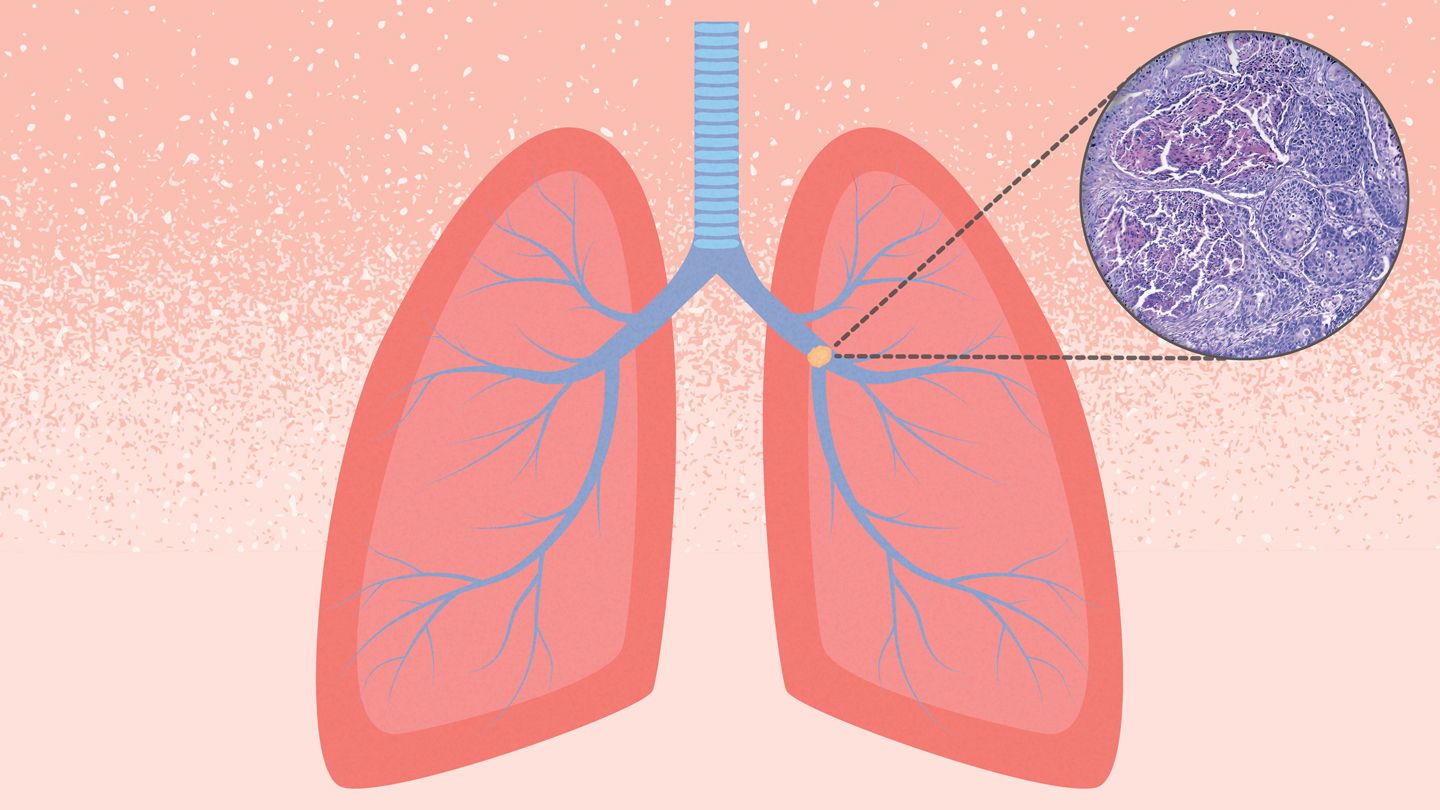Treatment options for squamous cell lung cancer will depend on various factors, such as the stage of the disease, the type, whether certain gene mutations fuel the cancer, and your overall health.
Surgery
If the cancer has not spread outside of the lung, surgery may be an option. There are three main types of lung cancer surgery:
- Wedge Resection A surgeon removes only a small part of the lung.
- Lobectomy One lobe of the lung is removed.
- Pneumonectomy An entire lung is removed.
Chemotherapy
Chemotherapy uses drugs to kill cancer cells in the body, and is normally injected into a vein. When it comes to squamous cell lung cancer, chemo may be given before or after surgery, or to slow the cancer’s growth and improve symptoms if the lung cancer has spread. Squamous cell lung cancer doesn’t respond as well to chemotherapy and radiation as other types of tumors.
Commonly used chemotherapy drugs for squamous cell carcinoma are:
- cisplatin, often combined with gemcitabine
- carboplatin
- albumin-bound paclitaxel
Chemotherapy can have many side effects, including:
- Anemia
- Diarrhea or constipation
- Fatigue
- Hair loss
- Increased risk of infections
- Nausea and vomiting
Radiation Therapy
Radiation therapy uses beams of energy to destroy cancer cells in the body. External beam radiation, which is aimed at the lung cancer from outside the body, is the type most commonly used to treat squamous cell lung cancer.
Some possible side effects of radiation are:
- Fatigue
- Nausea and vomiting
- Radiation pneumonitis, due to changes in lung tissue
- Scarring of the lung
- Shortness of breath
- Trouble swallowing
Targeted Treatments
Targeted treatments focus on certain gene changes in cancer cells. If a person’s tumor contains specific abnormalities, these therapies may be effective. These gene mutations tend to occur less frequently in squamous cell lung cancers than in other types of lung cancers.
Your doctor can test your tumor for specific gene defects that may respond to targeted therapies.
Immunotherapy
Immunotherapy involves training your body’s own immune system to detect and destroy cancer cells. There are four FDA-approved immunotherapies for people with NSCLC, including squamous cell lung cancer. These drugs are called checkpoint inhibitors, and they encourage the immune system to go into overdrive.
Research has found that the combination of the immunotherapy drug pembrolizumab (Keytruda) with chemotherapy significantly prolonged survival in people with advanced squamous cell lung cancer.
Angiogenesis Inhibitors
Angiogenesis is the process of the body making new blood vessels. Angiogenesis inhibitors prevent these new vessels from forming, which blocks the tumor from having access to blood. Without oxygen and nutrients found in blood, the tumor should die or stop growing.
Ramucirumab (Cyramza) is an angiogenesis inhibitor that is approved to be used with docetaxel, a chemotherapy drug, when the cancer has metastasized.
Read the full article here




